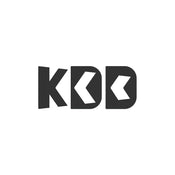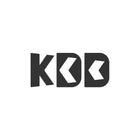Recently, water flossers have become popular. On many online platforms, many Internet celebrity bloggers are recommending them, setting off a wave of buying water flossers on the entire network. Some people even claim that it can replace toothbrushes. Is that so? Is buying a water flosser paying IQ tax?
The irrigator is also called a water flosser, which can be understood as a high-pressure water flow, which is used to rinse food residues that are not easy to remove when gargling. The biggest feature of the water flosser is that it can flush out the food impacted between the teeth or hidden parts, and these parts cannot be cleaned in place by brushing and gargling. Therefore, in terms of use, the public can use the water flosser for periodontal maintenance and tooth cleaning, especially for orthodontic patients and periodontal patients.
Because orthodontists have brackets on their teeth, it is easy to impact food residues after eating, and it is difficult to clean up by brushing alone. By using a water flosser, the food residues hanging on the arch wires and brackets can be washed away in a wide range. In addition, some patients with periodontal disease and those with severe tooth plugging can effectively clean the gap between their teeth and maintain their periodontal health. However, for those with coagulation disorders, hemophilia, and those who have just undergone oral surgery, the irrigator should be used with caution.
It is worth noting that although the irrigator can flush out food residues, it cannot completely remove the plaque on the tooth surface. Therefore, the irrigator cannot replace a toothbrush. Toothbrushes are generally used to clean tooth surfaces, as well as food debris and plaque attached to some shallow crevices. Some debris stuck between the teeth needs to be cleaned with floss and irrigator. For the use of dental floss, not everyone can use it properly, and some hidden corners can be used when flossing cannot be used. Therefore, the combination of toothbrush, dental floss and irrigator can achieve better oral cleaning effect.
High-tech tooth care products cannot replace the process of brushing your teeth. Correct cleaning methods, good hygiene habits and professional oral care are the three magic weapons for maintaining oral health.
In daily life, to brush your teeth after meals, you should eat breakfast after brushing your teeth in the morning, and it is best to brush your teeth after meals. If it is inconvenient, you can rinse your mouth first, and then brush your teeth after eating breakfast. If it is inconvenient to brush your teeth after a meal, you can also rinse your mouth, assist with flossing or use a water flosser to clean your mouth, which is conducive to maintaining oral hygiene. It is recommended to go to the dentist for sandblasting or scaling every 6 months to 1 year, and do a comprehensive oral examination at the same time.
If you want to clean your teeth more thoroughly, you can try using our KUSKER Water Flosser and our KUSKER Electric toothbrush.


